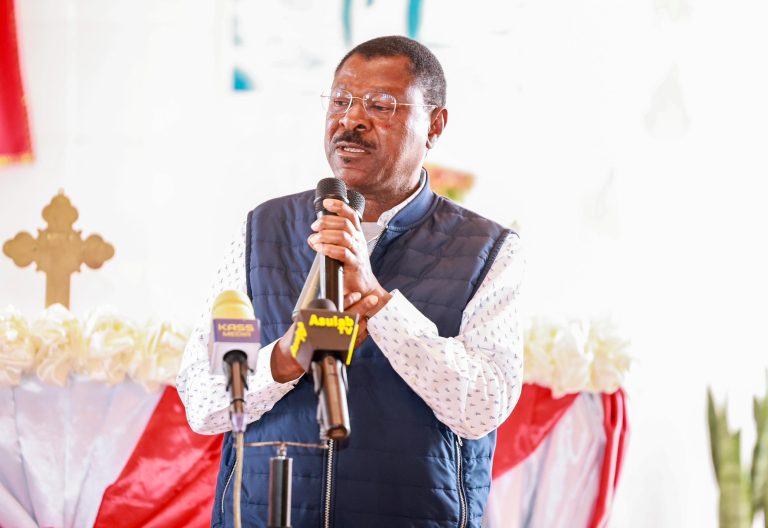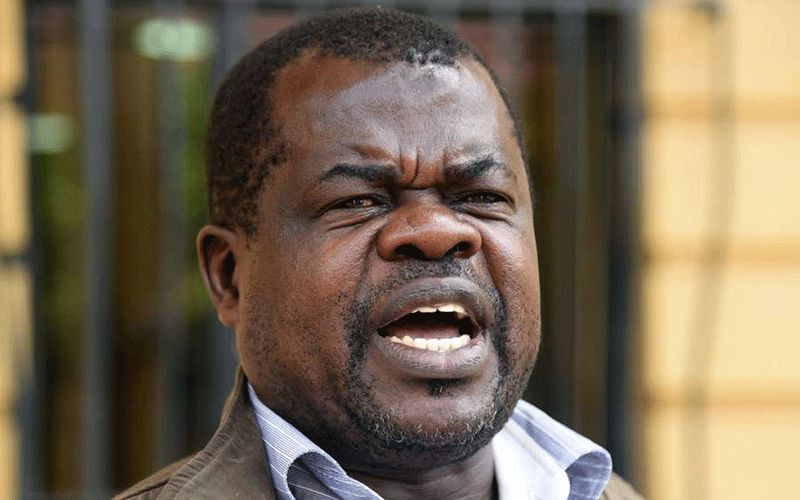Omtatah in court seeking to challenge DPP office powers
By Bernice Mbugua, September 7, 2020Bernice Mbugua @BerniceMuhindi
The feud between Director of Public Prosecutions (DPP) Noordin Haji and Directorate of Criminal Investigations (DCI) George Kinoti has found its way in court after activist Okiya Omtatah challenged the constitutional mandate of the former.
Omtatah moved to court on Friday claiming that Haji has overstepped his authority and usurped the powers of the National Police Service (NPS) in the investigation and prosecution of criminal cases.
Subsequently, the High Court certified as urgent the case filed by Omtatah on the turf between the NPS and the DPP over prosecutorial powers.
Justice Weldon Korir directed Omtatah to serve DPP, Inspector General of Police and the Attorney-General the application by September 16.
“Upon service, the Respondent and the Interested Parties to file and serve their responses before close of business on September 28,” the judge ruled.
Omtatah, in his suit, wants the court to give guidance on who between NPS and the DPP has the mandate to investigate and charge suspects in court.
Omtatah argues DPP has usurped the constitutional and statutory powers of the NPS as regards of the police mandate to investigate crimes and charge suspects.
He contends that the turf between the two constitutional bodies is suffocating and suppressing the criminal justice system.
Omtatah challenges the guidelines on the Decision to Charge, published on July 30 by DPP in a local newspaper.
“Petitioner is aggrieved that, though the 2010 Constitution and various statutes separate criminal investigations from criminal prosecutions, through the Guidelines, the DPP usurped the mandate to supervise or manage police investigations and to charge suspects,” he says in court documents.
Omtatah posits that the DPP’s powers only kick in after suspects have been charged in court and they contest the charges making it necessary to prosecute them.
“Under the law, the DPP has no mandate to direct the Inspector General of the National Police Service to investigate any particular offence or offences; he can only direct the IG to investigate any information or allegations of criminal conduct.
No mandate
“Decision to charge a person suspected of committing a criminal offence is the mandate of the police and not of DPP,” Omtatah says.
He continues: “Court should take judicial notice of the fact that all documents used in the decision to charge a suspect are domiciled with the police, these include, the Charge Sheet (P5), Charge Register, and the charge and cautionary statements.”
According to Omtatah, not all arrests do or should result in prosecution as some victims may not be interested in prosecution or the police may establish that the suspect is innocent of any wrongdoing.
Omtatah says the Guidelines are unconstitutional, null and void and that, unlike in the US where the decision to charge is a prosecution mandate, under Kenyan law, the decision to charge a person suspected of committing a criminal offence is the mandate of the police and not of DPP.
“The Guidelines do not distinguish between a suspect and an accused person and the differences between the decision to charge suspects, which is an exclusive function of the police, and the decision to institute criminal proceedings against accused persons which the Constitution reserves exclusively for the DP,” he says.
He wants the court to issue an order suspending the said guidelines and DPP be prohibited from implementing them.
Justice Weldon Korir directed the matter to be heard on October 5.
More Articles

